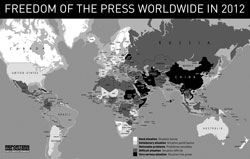On Wednesday, after a U.S. Food & Drug Administration (FDA) advisory panel OK’d a booster dose of the Pfizer-BioNTech COVID-19 vaccine, CDC Director Dr. Rochelle Walensky voiced her support for the measure.
On Sept. 22, the Centers for Disease Control and Prevention (CDC) accepted an FDA advisory panel’s recommendation that those in “high risk groups,” including senior citizens and workers who are at risk of exposure to the virus, receive a third dose of Pfizer’s mRNA COVID-19 vaccine.
This news comes following a similar panel in the CDC advising against such boosters for at-risk workers. Dr. Walensky sided with the decision of the FDA, reversing that of her own CDC, agreeing that those at “high risk for occupational or institutional exposure” should in fact receive a booster dose.
Generally, the move for booster shots is seen as a positive step by Americans. A poll by Morning Consult in August found that 77 percent of vaccinated adults would get a booster shot “if it was recommended,” meaning if they fell into a group for whom the shot is authorized. Only 5 percent said they would not get a third dose, while 12 percent said they were not sure.
In an attempt to ease the anxieties that have arisen in response to the booster conversation, President Joe Biden (D-DE) received his third dose of the Pfizer vaccine live during a press conference. “I know I don’t look it, but I am over 65,” he joked in a public speech. He also called out the unvaccinated population, saying, “That distinct minority is causing an awful lot of damage for the rest of the country. This is a pandemic of the unvaccinated. That’s why I’m moving forward with vaccination requirements wherever I can.”
But there have been outspoken dissenters of the measure.
Some have criticized the measure for being unclear in terms of who is eligible for the third dose and when availability would open to the general public.
In an interview with Margaret Brennan on CBS’ Face the Nation, Dr. Walensky admitted “…I recognize that confusion right now. Our recommendation is for these limited people in the population, over sixty-five high-risk workers, high-risk community occupations, as well as high-risk by comorbidities.”
There is additional confusion regarding the availability of different companies’ vaccines, leading to questions about whether or not people can “mix and match” their vaccines; that is, getting a booster shot of Moderna’s vaccine after getting the Pfizer jabs initially or vice versa. Countries like Canada have already authorized such dosage combinations.
“We want to boost now so we don’t end up in a vulnerable place…” said Dr. Walensky for CBS’ Face the Nation about possible future booster shots. “We are working to stay ahead of the virus. We will see if we can get the amount of transmission down in this country and truly around the world, which we are also working to do…we are anticipating and hoping that we will not have more mutations that will require more boosting in the future.”



